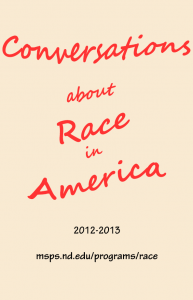How do we reach and organize the critical “critical mass” of fully invested students, faculty, and staff in the fight for racial equity on our campuses?
- Dismantle privilege.
- Continue to acquire knowledge.
- Embrace and encourage change.
This fight for racial equity—by which I mean the solidarity and struggle of an elite multi-generational and multicultural team of students and professionals in the pursuit of the full and equal access and participation of all races and communities of people in the fair and equitable attainment of higher educational outcomes—is not for everybody.
The fight for racial equity is not an equal opportunity endeavor. If it was, there wouldn’t be such a specific, dire, critical need for racial equity projects in American higher education in the first place.
Rather, what I am interested in is the movement’s critical mass: the minimum required amount of human capital to create a new system of radical racial equity on our university campus.
As I understand things, we have not reached a critical mass in the fight for racial equity yet for a few reasons:
- Relative (though in no way universal) racial and socio-economic privilege and advantage among dominant, majority groups often prevents an understanding and valuing of the dire urgency for racial equity.
- Honest lack of knowledge and skillsets in the practice of oppression theory, critical race theory, and liberation theology by administrators, faculty, and staff prohibits fully institutionally-organized racial equity efforts.
- Real and understandable fear of the challenge of radical, institutional and campus change can undermine the pursuit of racial equity.
Privilege, lack of knowledge, and fear.
So what does it take to overcome these barriers and to identify and organize the critical mass of individuals for whom the fight for racial equity is necessary to bring about significant change and development to campus?
These are vague beginnings:
- Dismantle privilege. We need desperately to increase the number of students, faculty, and staff who can articulate opposition to the racial privilege and caste systemthat has dominated the political and socio-economic foundation of higher education in our country for the past 400 years.
- Formal and informal (but always purposeful) cross- and intra-group discussion.
- Development of thoughtful new programs (in replace of the old) to dismantle the system of privilege on our campus. These programs will do as much to address the eradication of legacy admissions, traditional staff hiring practices, and faculty tenure processes as they will to undo policies related to leadership position appointments, mentoring and career services outcomes, and facilities and residence hall organization. The mission of these new programs should, in fact, be: “To fully dismantle the inequitable system of privilege across our entire campus.”
- Acquire knowledge. This does notrefer to cultural competency or passive mentoring about tolerance and difference. Rather, the knowledge necessary for the movement for racial equity is a deep, life-long, foundational learning process about systemic oppression, critical race, and liberation, as well as thoughtful racial identity development.
- Increase dramatically the numbers of students, faculty, and staff who participate in these schools of thought through new hires, new tenures, and new admissions procedures.
- Establish purposeful personal and professional development programs for the continued investment in the racial equity skills of our campus leaders.
- Fully integrate and organize students and professionals equipped with this knowledge into fundamental positions throughout the structure of the university.
- Embrace change. Do not fear change. We must fight for change. We need to recognize in the deepest of our hearts that the campus must change, and radically, in order to build the kind of college environment that true and just racial equity demands.
Tradition, by this recognition, is a significant barrier to racial equity by virtue of the obvious diametrically opposed realities of tradition and change.
- New programs and services must significantly embody the transparent call for change and in very many, if not all, cases must competently and thoughtfully oppose campus traditions. This will mean the eradication of tradition-focused programs, as well as the thoughtful integration of new and more integrated educational programs for racial equity.
At an institutional level—and at a personal level—if we can start with these three broad approaches to campus racial equity, we might begin to assemble the necessary critical mass to create the kind of institutions we want to create.


